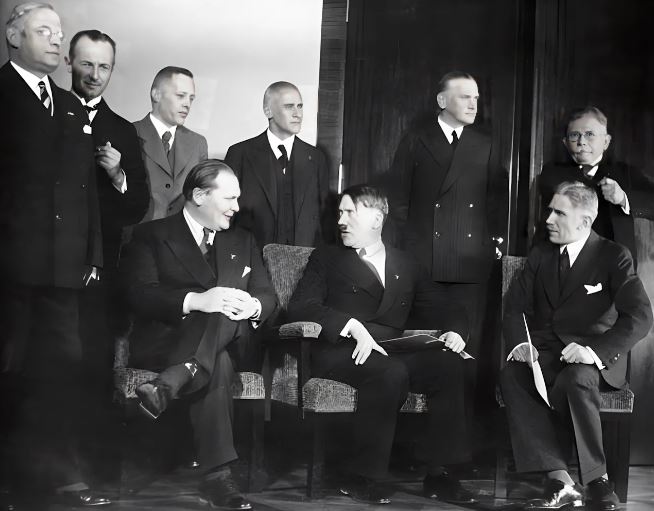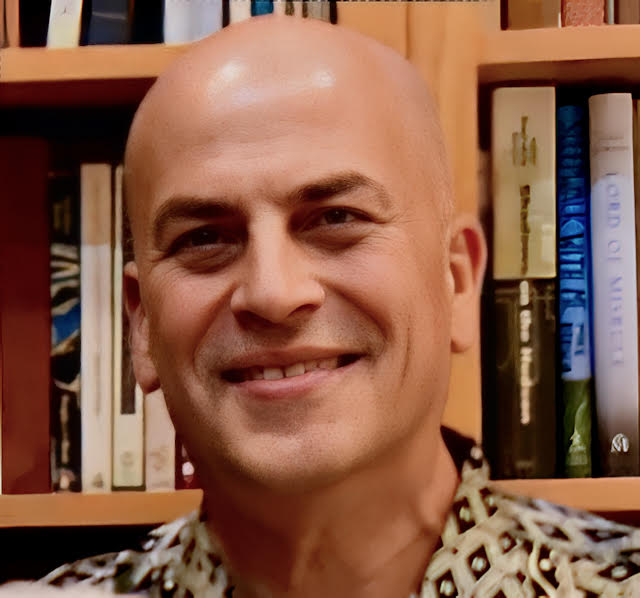Censorship, Antisemitism, And Free Speech

Silence Always Encourages The Tormenters

Wherever they burn books they will also, in the end, burn human beings. ~ Heinrich Heine
On the evening of May 10th, 1933, in a display of ultimate censorship, Adolph Hitler and his ministers staged and supported nationwide book burnings of all authors they deemed disreputable. These included the works of Heinrich Heine, Sigmund Freud, Thomas Mann, Bertolt Brecht, Ernest Hemingway, Erich Maria Remarque, Albert Einstein, Walter Benjamin, Karl Marx, Jack London, and Margaret Sanger.
This occurred only a few months after the German parliament was torched, assuring Hitler’s ascent to dictatorship. University students publicly burned tens of thousands of books in cities and towns across Germany as an action against the Un-German Spirit. For a decade, the Nazi party had slowly gained influence and power with popular policies of anti-communism, antisemitism, and ultranationalism. Slowly but surely, dissent was increasingly ridiculed and marginalized.
All signs of a free press quickly disappeared and news sources were reduced to a state-approved propaganda machine that simply echoed government policies. The Nazis further ostracized and then eliminated all organizations and citizens they accused of spreading disinformation.
Criticism of the state was not only forbidden; it became punishable by death. This collapse of democracy into a fascist dictatorship only ninety years ago is a reminder that attempts to smother competing ideas can signal the advent of ultimate censorship and horrific atrocities.
Consideration of similarities and differences to the build-up towards the inhumane mass murders of the 20th century is historically relevant as contemporary societies face continuing degradation of human rights and social disasters. As conflicting ideas and polarized emotions increase, notice must be taken of political manipulations that reverberate with abuses of the past.
Repressive acts in the name of the common good portend the rise of totalitarian states.
Some of what we see and experience today compares to the ethos of Nazi Germany before committing war crimes of the highest order. Speaking out about this is not offensive to anyone besides those who demand obedience to their mindset and mandates.
Questioning authority and exposing similarities to dangerous historical trends is the only means of checking the dangerous consequences of intellectual intolerance.
Don’t Make Trouble
As a child born into a Jewish family in New York as the shadow of World War II was lifting, I had little experience of antisemitism. My childhood friends and I played war with toy guns near the creek behind my home; dividing our forces into German and American soldiers. We had no idea about the horrors of the previous decades; or the death camps where innocent Jews were humiliated, starved, and murdered.
My grandparents and great-grandparents had escaped to America ahead of the worst horrors of the first half of the 20th century, though they never spoke of what they had left behind. My father, who had served in the U.S. Army in France and Germany, was not inclined to share his experiences. At a young age, I found among my father’s papers, a photo of German soldiers under guard using shovels in a huge pit. On the back of this picture, my dad had written, Nazi bigwigs digging up mass graves. It took many years before I began to comprehend what he had experienced.
In school, I learned some historical facts about the war and the holocaust, although throughout my youth and into my twenties, I avoided considering the incredible emotional pain caused by antisemitism that had occurred not long before I was born. Not only was the topic just too overwhelmingly sad; I couldn’t imagine how it could have happened.
The stories of stormtroopers dragging people out of their homes seemed almost impossible. It is difficult to know how we might respond to a government that exceeds its authority with violence against its own citizens, although I felt sure I would die resisting before allowing anyone to arrest me for my beliefs or words.
It was years later that my knowledge was significantly broadened. I worked on a special co-production for British, American, Israeli, and Swiss television called Nazi Gold. The documentary was the first detailed investigation into the role of Switzerland in WWII.
At the heart of the story is the plight of European Jews who sent their savings to Switzerland and then died in concentration camps. When their surviving family members were unable to retrieve the money, an international furor arose accusing Swiss authorities and banks of greed and antisemitism.
As the lead investigator on this project, I located people who had claims against the banks. Some had been in the camps and others hidden; all of their stories brought me closer to understanding the barbarities that hate-filled antisemitism generates.
The emotions of these survivors immersed me in an era I had not really known.
One woman who was denied any help in securing her father’s account, described how her parents had smuggled her out of the Warsaw ghetto before they were arrested and killed. She had been adopted and recalled when she was a young girl, how her new family would go on outings to a hill where they could see the smoke from a concentration camp; they went to ‘watch the Jews burn.’ After the war, when she went to Switzerland to retreive her father’s account, she was turned away by a bank that refused to assist her in any way — because she had no death certificate.
A man who had been denied access to his father’s money in Switzerland, even though he had account numbers, described his experience in a concentration camp as a child. Because he was small, he was given the job of cleaning chimneys in the crematorium. He survived, but with horrific memories that never faded; made more painful by the theft of his father’s assets.
We interviewed some individuals — and confirmed with numerous reports — about how Jews attempting to escape Germany were turned away at the Swiss border. Most were captured by the Germans and sent to the camps. This and much of what we uncovered, showed how Switzerland was in the business of appeasing Germany. At the core of policy was cold-hearted greed, as they remained the international banking center for the German government throughout the war.
I was beginning to understand the depths and the damage of antisemitism.
One of the revelations in the film was that the Swiss government allowed cattle cars filled with Italian Jewish families and Partisans fighting the Nazis to transit through Switzerland on the way to camps in Germany. Although we had confirmation from an eyewitness and Railway records, I also located an elder in the Zurich Jewish community who someone had suggested knew more about the transports. When we sat down at a cafe and he realized what I was asking about, he stood up and said, don’t make trouble.
As this elderly man who refused to share his secrets walked away, I recognized I’d just been told to desist in my attempt to expose the truth and not disturb his reality. It was a chilling experience that gave me a glimpse into the struggle of those who attempted to raise concerns in the early days of Nazi Germany.
I have sympathy for those whose denial of reality emanates from a shred of desperate hope that things will not turn for the worse; though remaining quiet or unseen had no reward for the Jews of Europe in World War II.
My encounter was as close as I came to understanding the growing darkness leading up to the war. Don’t make trouble was a phrase used by some Jews in Germany who were in denial of how bad things were — before the Nazis began sending them to the death camps. It emanates from the naive belief that by remaining passive, life will return to normal. This is never the case when censorship and totalitarianism are on the rise.
The experience reinforced my resolve to find out more about hidden past events. I started to recognize that discouraging dialogue on important issues, ignoring evidence, and muting resistance to tyranny — are deeply problematic responses. Attempts to silence dissent are evidence of a pernicious situation that is headed toward greater suffering.
We must always take sides. Neutrality helps the oppressor, never the victim. Silence encourages the tormentor, never the tormented. Sometimes we must interfere. When human lives are endangered, when human dignity is in jeopardy, national borders and sensitivities become irrelevant. Wherever men or women are persecuted because of their race, religion, or political views, that place must—at that moment—become the center of the universe. ~ Elie Wiesel
Perennial Scapegoating
The Jewish people have been in the nosecone of civilization for thousands of years. Their seemingly disproportionate burden of humiliation and suffering is inextricably intertwined with a sound cultural emphasis on family, education, and the pursuit of excellence. The idea that Jews are a chosen people is certainly true in the sense that their experience holds up a mirror for humanity to reflect both the virtues and flaws within all tribes, cultures, and religions.
An understanding of how external hate has impacted the Jewish people requires an awareness of the details of tribulations endured for centuries. They have been the scapegoats for many fanatics, including Roman oppressors, Christian crusaders, Russian warlords, and Nazi fascists.
For over two thousand years, Jewish immigrants, escaping tyrannical antisemitic regimes, have sought freedom in faraway lands, leaving everything behind to save their lives. Yet in those places where they sought relief from prejudice, they continued to experience subtle and overt antisemitism.
In attempting to reverse this trend and prevent further abuse, individuals and organizations have nobly strived for change. The Anti-Defamation League, a leading anti-hate organization, whose mission is “to stop the defamation of the Jewish people and to secure justice and fair treatment to all,” defines antisemitism as:
The belief, or behavior hostile toward Jews, just because they are Jewish. It may take the form of religious teachings that proclaim the inferiority of Jews, for instance, or political efforts to isolate, oppress, or otherwise injure them. It may also include prejudiced or stereotyped views about Jews.
In the 21st century, antisemitism still drives some international politics. Most enemies of Israel manifest and act out irrational anger that causes them to believe the Jewish homeland, religion, and culture are responsible for their own societal problems. The complexities of the current strife surrounding Israel, and its own domestic conflicts, have much to do with the polarization caused by hateful antisemitism.
In a microcosm of the same hostile, divisive dynamic, deranged individuals use hateful speech and inflict violence on Jews in a desperate attempt to act out a deep dissatisfaction with their own lives. Most often, those who commit violence have been swayed by persuasive voices into believing that their problems — and the suffering of the world — are due to the actions, or simply the existence, of Jews.
Whether inciting antisemitism internationally or within individuals, agitators and leaders foment the basest of human instincts; finding fault with Jews for events or crises for which they have no responsibility. They have been irrationally blamed and targeted for droughts, plagues, the death of Jesus, and economic disorder.
The deluded, senseless, angry profile of the antisemite is unmistakable.
Hate Speech, Hate Crimes, and Never Again
Some societies have recognized that censorship will not stop antisemitism or any bias; attempts to repress it often incite further hate speech. In countries with clearly defined laws regarding freedom of speech, including the United States, jurists have consistently agreed with this knowledge.
The Supreme Court unanimously, for a long time, has held that the government may not outlaw any speech based solely on the disapproval of its content. No matter how much we hate the idea, and no matter how much we may vaguely fear that it might be dangerous in some way, that is never a justification for censoring it. ~ Nadine Strossen
Although antisemitic hate speech by itself is not illegal and can only be discouraged, unlawful actions initiated by such utterances are subject to prosecution as hate crimes.
Institutions within democratic societies, through knowledge and education, attempt to diminish hate speech and ensure that the worst of human behaviors do not recur. Never Again is a term used to capture this powerful and important concept. In the broadest sense, it awakens the need to end all xenophobia, racism, and antisemitism; while promoting intercultural dialogue, human rights, and peace.
Initially, the concept was a response to the attempt to totally annihilate the Jewish people. Never Again has taken on a broader meaning, implying abhorrence to all mass murders and slavery of the modern era — and a refusal to tolerate any future genocide. It is a simple expression of a strong ideal, although its implementation and effectiveness require an understanding of how society deteriorates and allows the worst of human behavior.
It is relatively easy to look back on history and read about the decline of democratic governments and their degradation into abusive, fascistic, totalitarian regimes. The essence of Never Again includes the difficult task of recognizing the conditions that allow the precursors of genocide. This is most challenging when observing the devolution and machinations of contemporary political differences.
Those who acknowledge current threatening repressive trends are often scorned until their warnings are heeded belatedly. We find ourselves in a bizarre landscape where charges of spreading lies and disinformation are used to smear both foreign enemies and domestic political opponents. This only causes greater misunderstanding and division.
In this atmosphere, there are some who attempt to justify the repression of free speech. Along with this censorship, name-calling becomes shrill and reduces debate to the lowest levels of insult.
In desperation, claims of antisemitic speech or actions are sometimes used to suppress individuals with unwelcome ideas. The word is increasingly misused in attacking those who disagree with government policies and tactics — or in defending power and prestige. People who have experienced or understand true antisemitism — and the degree to which it can generate hostility and violence — will never misuse the term.
No blame is assessable other than to those who deny there is a problem with freedom of speech — and attempt to end any discussion.
Sweeping accusations of antisemitism are an offensive ploy, revealing no comprehension of the precursors of degenerative human behavior. Comparing the abuses of Nazi Germany to the polarization of contemporary politics is not a sin. If it opens a wound, then the wound needs further healing.
Indiscriminate and selfish use of the term antisemitism in an effort to gain political clout is an insult to justified applications. Attacking an individual by calling them antisemitic for an ulterior motive is highly offensive and gravely problematic; it distracts from truly harmful words and actions.
Accusations of antisemitism must only be applied with consideration and as an evaluation; certainly not as an insult. Yet it has become acceptable to use in brash attempts to slander someone who might have a nonconforming perspective on corporate influence, health care policy, or scientific applications.
These same voices are often those who claim all comparisons and invocations of the holocaust must meet some subjective standard or they will be condemned as irreverent and inadmissible. The undisguised censorship of correlations between past suffering and current repressive trends simply confirms the assertion.
Certainly, it is harmful to trivialize an immense tragedy, however, this does not mean the holocaust can not be discussed by those who see the initial formation of the groundwork for atrocities. Anyone who would remove the right to be heard on this topic or insist that there are no alternative views — in their own way is saying, Don’t Make Trouble — revealing their unwillingness to face the threats of the world with open eyes.
Never Again necessitates that freedom of expression, under any condition, is not denied by those who attempt to use the absolute authority of the state as justification for repression.
The history of man is the history of crimes, and history can repeat. So information is a defense. Through this we can build, we must build, a defense against repetition. ~ Simon Wiesenthal
Originally published on the author’s Substack.
One of our country’s most important freedoms is that of free speech.
Agree with this essay? Disagree? Join the debate by writing to DailyClout HERE.





Every one should watch Mr. Marks’ PBS documentary on the Nazis – it is superbly done.
I am very interested in what Mr. Marks has to say about the rantings of Stew Peters, who had a segment today not only attacking the ADL, but telling his audience that the ADL is a hate group that wants to exterminate white Christians.
Here is the link to that segment of the Stew Peters show:
https://stewpeters.com/video/2023/08/adl-infiltrated-exposed-as-social-media-overlords-plot-to-ban-conservatives-using-ai-tech-exposed/